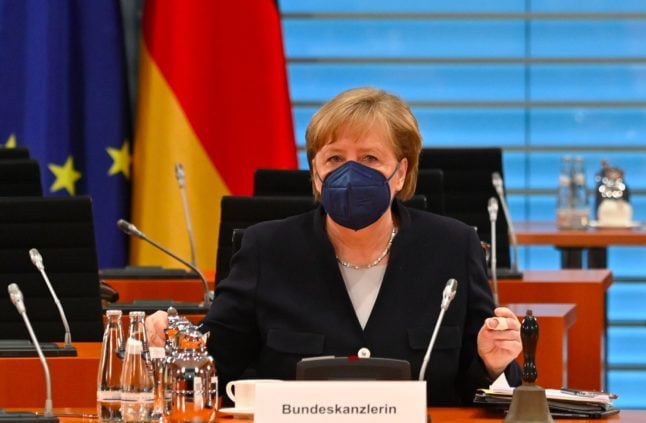The WHO Hub for Pandemic and Epidemic Intelligence, which will start operating later this year, is set to analyse data quickly and in detail, in order to predict, prevent, detect, prepare for and respond to risks worldwide.
The hub will try to get ahead of the game, looking for pre-signals that go far beyond current systems that monitor publicly available information for signs of emerging outbreaks.
“The Covid-19 pandemic has exposed gaps in the global systems for pandemic and epidemic intelligence,” WHO chief Tedros Adhanom Ghebreyesus told journalists.
“There will be more viruses that will emerge with the potential for sparking epidemics or pandemics.
“Viruses move fast. But data can move even faster. With the right information, countries and communities can stay one step ahead of an emerging risk and save lives.”
READ ALSO: ‘We are still in the third wave’: German Health Minister urges caution in reopening after shutdown
Merging digital, health expertise
German Chancellor Angela Merkel said Berlin was a good location for the hub as it already had leading players in the digital and health fields, such as the Robert Koch Institute.
“If that expertise is now supplemented by the WHO Hub, we will create a unique environment for pandemic and health research here in Berlin – an environment from which important action-oriented insights will emerge for governments and leaders around the world,” she said in a video message.
It is hoped that the site will be operational from September. Its budget is still under discussion, while Germany will meet the start-up costs.
German Health Minister Jens Spahn said the world needed the capacity to detect outbreaks with the potential to become health crises “before the threat becomes a sad reality”.
Global systems were currently “insufficiently prepared” to handle the risks posed by outbreaks, mutations of existing pathogens, extensions of diseases to previously unaffected populations, and diseases jumping species from animals to humans, he added.
“There’s a clear need for a stronger global early warning alert and emergency response system with improved public health intelligence,” he said.
“Better data and better analytics are key for better decisions.”
Looking for pre-signals
“There are signals that may occur before epidemics happen… data that can give us pre-signals,” said WHO emergencies director Michael Ryan. That information could drive early decision-making, he added.
“The Hub will allow us to develop tools for that sort of predictive analytics,” he said.
A joint mission by international and Chinese scientists concluded in March that the SARS-CoV-2 virus which causes Covid-19 disease most likely passed to humans from a bat via an intermediary animal.
The experts’ report suggested the outbreak could have started as far back as September 2019, long before it was first detected in December 2019 in Wuhan.
The WHO only became aware of the new coronavirus on December 31st that year, when its epidemic intelligence service and its China office spotted a media report and a mention by the Wuhan Municipal Health Commission of a mysterious cluster of pneumonia cases.
The Covid-19 pandemic has killed at least 3.2 million people and more than 154 million cases have been registered worldwide since then, according to tallies from official sources compiled by AFP.




 Please whitelist us to continue reading.
Please whitelist us to continue reading.
Member comments